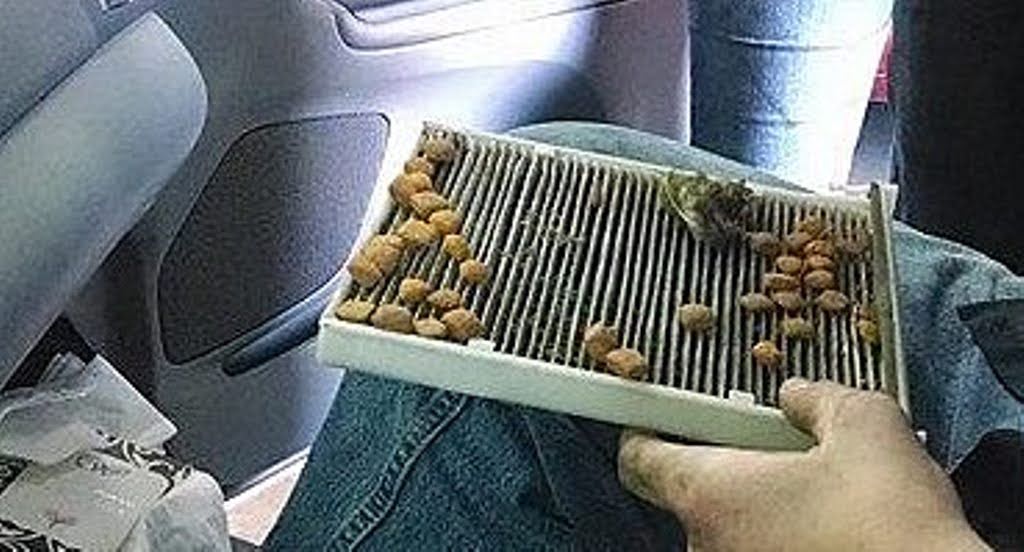With summer just around the corner, it’s time to get ready for clear skies, glorious sunshine, backyard water hose fun… and heatwaves. You’re probably well-versed on Newton’s most famous law of thermodynamics: When your car is parked under the sun, it basically becomes an oven.
Luckily, your vehicle is most likely equipped with an air conditioning system that can cool your car’s interior in a few minutes. But that might not be the case if your A/C system has been improperly maintained and left to fail over time. A car without A/C during the summer can quickly become unbearable, or even a health risk, so don’t let either happen to you.
Your Car A/C Maintenance Checklist
In this article, we’ll show you how to keep your car’s A/C system healthy and ready to fight the summer heat.
Clean or Change Your Cabin Air Filter (if equipped)
Cabin air filters (not all vehicles have them) trap dirt and keep debris from entering the cabin through the air conditioning system. Excessively dirty or clogged filters result in poor air flow to the cabin. If your filter isn’t reusable, replacement cabin air filters are relatively inexpensive and easy to install.

Most can be accessed through the glove box, but cabin air filters in older cars may require that you dismantle the dashboard. Check your owner’s manual for more information on your specific cabin air filter.
Maintain Your Engine Cooling System
Engine temperature can affect the efficiency of your vehicle’s A/C system. Make sure to flush your radiator periodically. Coolant carries heat from the engine block and is cooled in the radiator. An efficient radiator is key to maintaining optimum engine operating temperatures.
Check Your Fan Belt
“Fan belt,” “V-belt,” and “serpentine belt” are terms commonly used to refer to the accessory drive belt, but if your vehicle is using V belts it’s probably 20-30 years old or more. Check your fan belt to make sure it’s in good condition.
The belt is driven by the crankshaft pulley and snakes around all the belt-driven accessories, to include the A/C compressor pulley. There are idler and tensioner pulleys that provide belt tension and facilitate routing between pulleys.
Park in the Shade
Parking in the shade can help in keeping your cabin cool. Your A/C system will also cool air at a lower temperature, giving it the opportunity to cool the cabin faster. And don’t spend too much time idling in a hot parking lot with the A/C running if you can help it.

Use Low-blow Max A/C
You get the coolest air on low-blow max A/C because you’re re-cooling the same recirculated air and that means the compressor doesn’t have to run as much. For this reason, you’ll get better fuel economy on a long trip using max A/C (recirc) than you will using norm, which runs the compressor more. That seems counter-intuitive, but that’s the way it is.
Here’s a more efficient way to cool down a hot cabin:
- Turn on the A/C, but roll all the windows down as you start the vehicle moving to blow the heat out of the cabin. Some vans have electric “pop out” rear vent windows to help with this.
- Once cool air starts to come out of the vents, roll your front windows up.
- Keep adjusting the fan until your desired temperature is reached. Again, low fan speed/max-recirc is the best setting once the cabin is cool.
Use It
Your A/C refrigerant carries refrigerant oil like the oil in chainsaw gas, so that the refrigerant/oil mix will keep the compressor lubricated and keeps seals moist. Whenever you use the defrost function on your system, the A/C compressor runs by default. But even if you don’t need defrost during the cooler part of the year where you live, make sure you turn the air conditioning on every now and then (select a warmer blend temperature if it’s cold), and leave it running for 10 minutes while you drive.
Should You Have Your A/C System Checked Regularly?
Getting the A/C checked periodically isn’t a bad idea, but usually there aren’t any scheduled maintenance procedures other than replacing the cabin air filter (if equipped). Usually, if the A/C has a problem you’ll be the first one to notice it.
Stay cool and safe!
Any information provided on this Website is for informational purposes only and is not intended to replace consultation with a professional mechanic. The accuracy and timeliness of the information may change from the time of publication.































6. Don’t Max It Out
“Keeping your A/C on full blast at all times can place a lot of stress on the different components of your A/C system … and could eventually lead to damage.”
“It “could” also take power away from the engine, making you compensate with the accelerator, which “can” lead to lower gas mileage.”
This sentence should say: “It
coulddoes take power away…”. Running the Air Conditioner (compressor) always takes power from the engine. And requiring more power from the engine will always lower gas mileage. That’s how it works.7. Use It
Your A/C refrigerant carries lubricating oils to critical parts of the system, and keeps seals from drying up and cracking. If you aren’t using your car, make sure you turn the air conditioning on every now and then, and leave it running for 10 minutes.
This is good advice. And even if the car is not sitting unused, in the Winter it’s good to run the A/C occasionally, to keep the internal parts and seals lubricated year round.
“This will also “blast out” any mildew buildup in the system.”
This is not the best advice. If there is mildew in the A/C system, which usually grows on the wet evaporator coils, the coils and vent system should be cleaned with a foaming or spray antibacterial system cleaner. “Blasting” the mildew throughout the ventilation system and into the car cabin will make a big unhealthy mess. Any mildew should be cleaned in-place before it gets spread around the car to grow somewhere else.
As stated at the end of the article “Mold and airborne pathogens can circulate in the system and greatly affect your health.“
Here’s a more efficient way to cool down a hot cabin:
1). Before you start driving, open the windows and turn on the fan.
2). After you’ve been driving for a little while, turn the air conditioner on and set it at the lowest temperature.
3). Once cool air starts to come out of the vents, roll your front windows up and leave the back windows open.
4). Keep adjusting the fan until your desired temperature is reached.
5). Close your rear windows once the climate is just right.
Great advice! If the air inside the car is hotter than the outside air, it’s best to get the super-heated air out of the car and replaced it with the relatively cooler air, so the A/C has less over-all heat to remove.